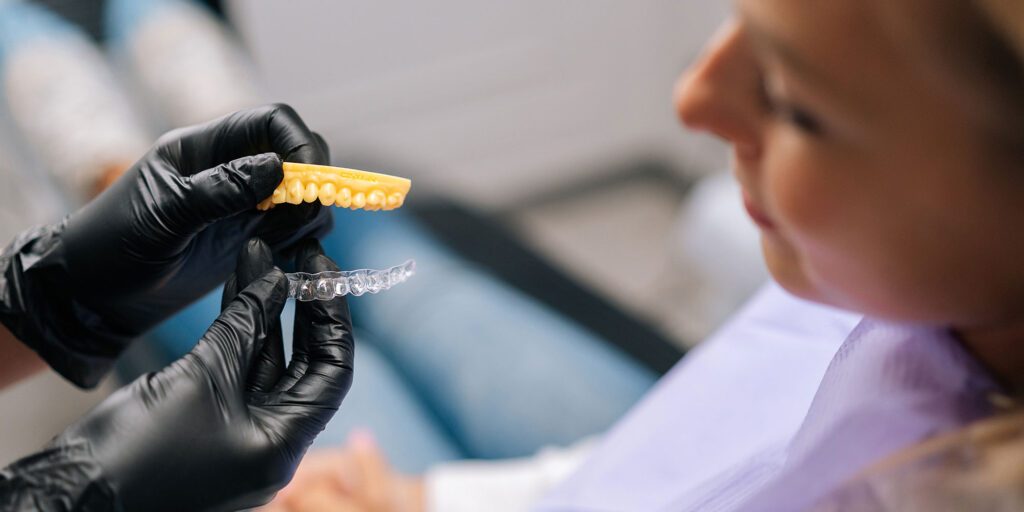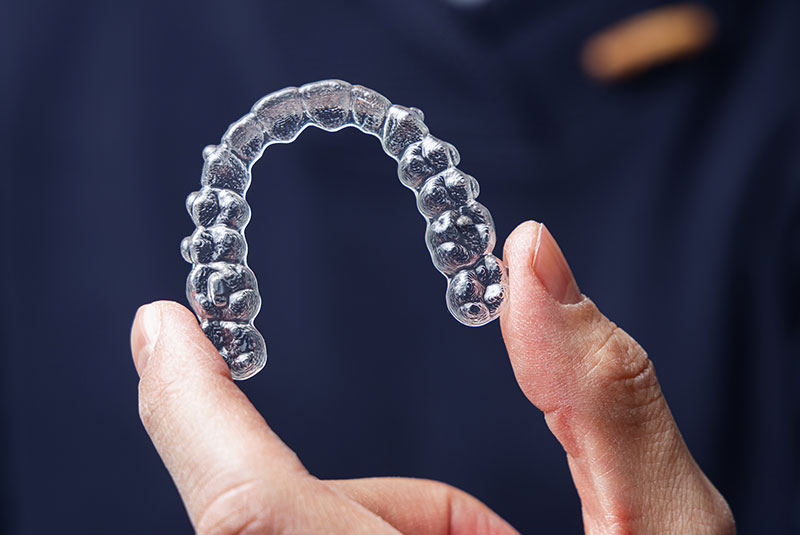
Invisalign® clear aligners are far more discreet and comfortable than metal braces for correcting minor to moderate overbites, underbites, and crossbites. The customized, nearly invisible aligners are made of BPA-free soft plastic called SmartTrack™. SmartTrack is specially engineered for Invisalign to apply a gentle, constant force, improve control of tooth movements, fit snugly and comfortably over your teeth, and straighten teeth predictably. If you’re looking for efficient orthodontics in Dallas, TX that won’t hinder your lifestyle, Invisalign clear aligners from Beyond Smiles Dental & Implant Center may be your best choice!
Conventional metal braces can cause discomfort, mouth sores, tooth decay from inadequate brushing and flossing, plaque buildup, tooth discoloration, tooth/bracket breakage, and they require food limitations. Invisalign in Dallas, TX, is a reliable and predictable method for straightening teeth without the downsides of traditional braces. With that said, Invisalign isn’t ideal for short, round, or pegged teeth and can’t correct a 20-degree or more significant rotation in molars, teeth that are tilted forward or backward by more than 45 degrees, nor raise or lower the position of teeth in your gum line.
Beyond appearance and self-esteem issues, crooked teeth can cause excessive wear and tear on your teeth, gums, and jaw muscles. Associated problems include cracked teeth, jaw strain, temporomandibular joint dysfunction, and chronic headaches. Misalignment also increases the risk of food particles getting trapped in spaces between your teeth, leading to bacterial plaque, cavities, gingivitis, and more advanced stages of gum disease.


Your journey from misalignment to a beautiful smile starts with a personalized consultation with one of our Invisalign-certified dentists. Our team will assess your current dental health and suitability for Invisalign during this visit. If we determine you’re a good candidate for clear aligners in Dallas, TX, we will use our state-of-the-art iTero Element™ scanner to create a detailed, 3D scan of your current smile and map out a custom treatment plan. When you pick up your first set of Invisalign aligners, we’ll ensure they fit comfortably and show you how to remove them for brushing, flossing, and eating.
Unlike metal braces that require an evolving plan and frequent bracket and wire adjustments, clear aligners enable your teeth to move along a more direct path to their target positions. You’ll visit Beyond Dental & Implant Center periodically so our team can monitor your progress and ensure you’re maintaining proper oral hygiene. To achieve desired results promptly, clear aligners must be worn for 20–22 hours daily. While the entire process can take as little as six months, the average treatment lasts about 12–18 months.
